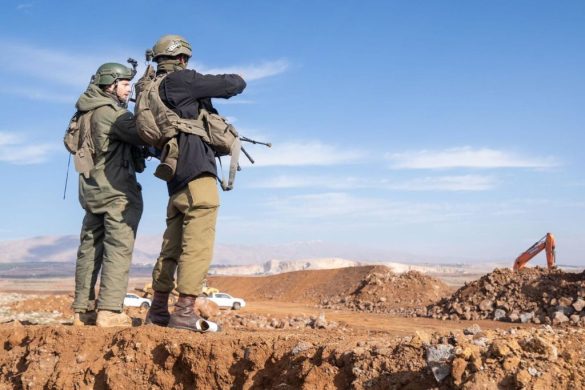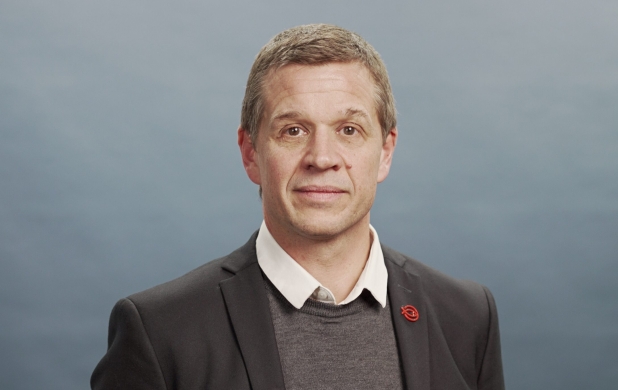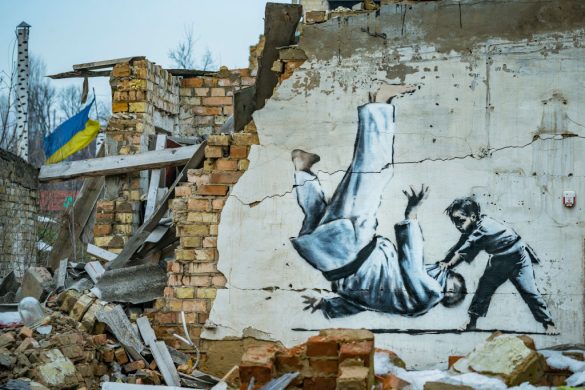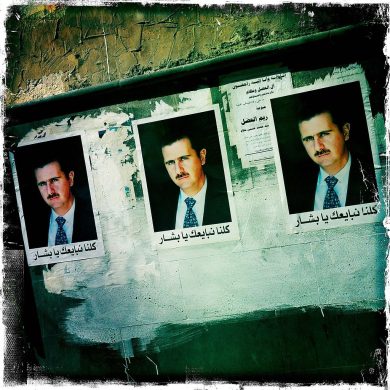Onsdag holder FN's højkommissariat for flygtninge, UNHCR, et internationalt topmøde, hvor det skal diskuteres, hvordan verdens lande – specielt de rige lande i Europa, Nordamerika og den Arabiske Golf – kan gøre mere for at hjælpe de omkring fem millioner flygtninge fra krigen i Syrien.
Landene omkring Syrien huser størsteparten af de mange flygtninge og et at målene med mødet er, at andre lande skal aflaste landene i nærområdet.
Mødet åbnes af FN's generalsekretær Ban Ki-moon.
Forud for mødet har en række af verdens store internationale NGO'er sendt et åbent brev til de politiske ledere, hvor de opfordres til at finde plads til i hvert fald ti procent af de syriske flygtninge.
Blandt de 15 underskrivere er Mercy Corps, World Vision, Refugee Action og Action Aid, som Mellemfolkeligt Samvirke er en del af.
Vibeke Vinther, national chef i Mellemfolkeligt Samvirke siger:
”Her er endnu et møde som umiddelbart mest handler om at finde løsninger på resten af verdens udfordring med de flygtninge, som har forladt Syrien, men de syriske flygtninge har ikke brug for flere møder. De fleste af dem har intet større ønske end en dag at vende hjem til et sikkert Syrien igen. Derfor er det på tide at fordoble de diplomatiske anstrengelser dels for at sikre forpligtende tilsagn om tilstrækkelig hjælp til nærområderne, som tager langt den største del af opgaven og lige nu er ved at segne under presset fra de mange flygtninge – dels fordi, det er er på høje tid at sætte alt ind på at skabe fred i Syrien.”
Det åbne brev
Open Letter to Global Leaders in advance of the UNHCR High Level Meeting on Global Responsibility Sharing through Pathways for Admission of Syrian Refugees on March 30 in Geneva.
As organisations working with or for Syrian refugees, we call upon states at the High Level Meeting on March 30 2016 to pledge to achieve the UNHCR target of resettlement and alternative pathways for at least 10 percent of Syria’s nearly five million refugees.
There is an urgent need for governments to do more to share responsibility with countries of first asylum by expanding pathways to protection for desperate and vulnerable Syrian refugees fleeing violence.
The significant financial pledges made at the London Syria Conference in February are vital, but do not absolve states from their responsibility to provide regular pathways of admission for people in search of refuge.
Resettlement of Syrian refugees has been insufficient so far. Only 178,195 pledges for resettlement and other forms of admission have been made in the past two years, and only a fraction of that number have translated into actual departures for third countries.
Resettlement and non-resettlement pathways for admission, such as via humanitarian visas and family reunification, must be expanded. And in doing so, states must ensure that the protection and post-arrival services offered to Syrian refugees allows them to live in safety and dignity, with a significant degree of certainty about their future so that they may start on the process of integrating in new host communities.
Canada has confirmed at least 35,000 resettlement places for Syrian refugees. Other countries – particularly the members of the European Union, the United States, and the Gulf States – can and must show leadership and do more.
Resettlement and other pathways of admission are a critical element of the response to the Syria crisis.
First and foremost, such pathways ensure predictable, manageable and safe passage for refugees, particularly for the most vulnerable. Resettlement and other forms of admission address the humanitarian imperative to protect those who are at the greatest risk, and provide viable alternatives to resorting to smugglers.
Second, resettlement and other pathways are an important signal of solidarity to the people of Syria and refugee-hosting countries that international support is multi-faceted, not strictly financial. Global responsibility sharing through resettlement is an indispensable tool which can contribute to stabilizing the situation in the frontline refugee hosting states and encourage them to continue to host large numbers of refugees.
Europe’s response looms large on the proceedings. In the lead up to the High Level Meeting, the agreement between the EU and Turkey to resettle Syrians out of Turkey in exchange for the return of those asylum seekers arriving in Greece is both illogical and unethical.
Border restrictions to date have only fuelled the humanitarian crisis with people taking more desperate routes in their quest for protection. Without alternatives, desperate people will continue to risk their lives, aided by smugglers, in the pursuit of safety.
EU member states must instead focus on unconditional, predictable, and safe routes to refuge. The High Level Meeting is an opportunity to demonstrate the EU’s commitment to organized, regular pathways, including resettlement places that do not hinge on return of asylum seekers.
States cannot approach the March 30th event in isolation. With more than 60 million people uprooted by conflict and persecution worldwide, the international community’s model to respond to global displacement is simply insufficient.
The High Level Meeting is one of a series of events that will address forced displacement in 2016: these include the World Humanitarian Summit; the High-level General Assembly Plenary meeting on addressing large movements of refugees and migrants; and the 20 September event on strengthening the international response to the global refugee crisis.
States must take bold steps towards true global responsibility sharing at these critical global moments. But Syrian refugees, and the host countries in the region struggling to cope with their presence, cannot wait. New commitments are needed now for Syria and its neighbours.
Resettlement is a necessary complement to increased humanitarian aid and redoubled diplomatic efforts to secure a lasting peace. The desired solution for the vast majority of Syria’s refugees is to be able to voluntarily return to a peaceful Syria in conditions of safety and dignity.
To this end, states must redouble diplomatic efforts to broker a lasting peace and must ensure robust humanitarian funding in the region. Resettlement and other organized pathways to third countries are an indispensable complement to diplomatic and humanitarian aid efforts in the region, to ensure full responsibility-sharing and protection of the immediately and acutely vulnerable.
We the undersigned organisations exhort states to demonstrate the necessary leadership by making concrete and robust pledges on 30 March.
Underskrevet
Refugee Council
Christian Aid
ActionAid
Refugee Action
CWS
HIAS
International Rescue Committee
Migration Refugee Services
Mercy Corps
U.S: Committee for Refugees and Immigrants
World Vision
Urban Justice Center
World Relief















